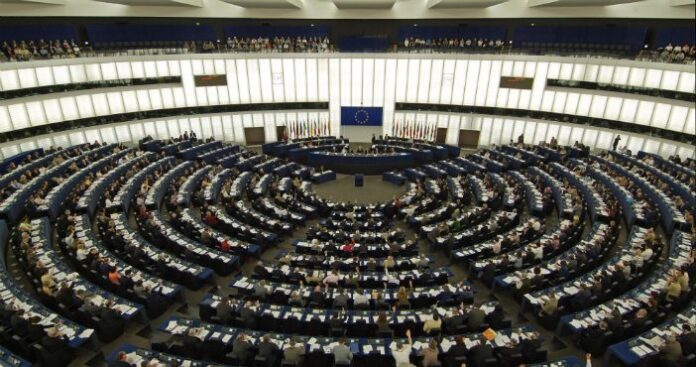The European Commission unveiled plans on May 6 to create a single market for digital technologies across the 28-member European Union. The plan, which took six months to develop, is comprised of 16 initiatives organized around three goals: to create better access for consumers and businesses, level the playing field for networks and services, and maximize the digital economy’s growth.
Some of the specific initiatives include making cross-border e-commerce easier, an overhaul of telecom rules including spectrum coordination, more modern EU copyright laws and ending practices such as geo-blocking, in which content suppliers deny users access based on their location. A produced video announcing the digital single-market plan showed commission members using tablets and smartphones to share information but then being locked out of the related links and videos.
The plan would “lay the groundwork for Europe’s digital future” according to Commission President Jean-Claude Juncker.
“I want to see pan-continental telecoms networks, digital services that cross borders and a wave of innovative European startups” Juncker said. “I want to see every consumer getting the best deals and every business accessing the widest market – wherever they are in Europe.”
But not everyone sees all aspects of the plan as a positive. For instance, one of the initiatives calls for a comprehensive analysis of the role of online platforms in the market such as search engines, social media and app stores. This initiative appears to take aim at U.S.-based Internet giants like Google and Facebook that play a dominant role in the European market. As described by the commission, the analysis will cover issues such as the nontransparency of search results and pricing policies, use of acquired information, and relationships between platforms and suppliers that create a disadvantage for competitors.
“Brussels appears poised to put government officials in charge of how hugely popular online services are designed and implemented,” Dean Garfield, president of the lobbying group the Information Technology Industry Council, told The Wall Street Journal.
The digital single-market plan is not yet final. It goes next before the European Council on June 25 and 26. The project team hopes to implement the initiatives by the end of 2016.
More telecom news from Europe, Africa and the Middle East:
• Ooredoo taps Syniverse for 4G roaming enhancement in Qatar. Under the agreement announced on May 6, Ooredoo Qatar will use Syniverse’s IPX Network Solution to improve its 4G roaming service. Syniverse’s solution provides a carrier-grade connection to the company’s all-IP network, which currently serves 800 LTE roaming routes and reaches across more than 200 operators in 44 countries. This will enable Ooredoo customers to receive high-speed service even when they travel outside of Qatar.
• Eaton Towers to buy 2,000 Egyptian towers, plans $350 million African expansion. Eaton Towers, which builds and operates mobile network towers, is aggressively expanding its business in Africa. The company recently signed a deal to buy 2,000 towers from Mobinil in Egypt, and also has raised $350 million for further expansion from the Capital Group Private Markets, and a consortium of equity firms, according to a report by Ventures Africa.
• Orange must share network with Masmovil in Spain. CNMC, the Spanish competition authority, has ordered Orange to provide operator Masmovil access to its 4G network. CNMC justified the move because of “a clear breach” of Orange’s contractual obligation to provide wholesale access within a reasonable period. Masmovil first requested access in May 2013. Now, under the CNMC order, Orange must present a wholesale offer to the operator within 10 days.
Want to know more? Check out our EMEA coverage, and follow me on Twitter!

